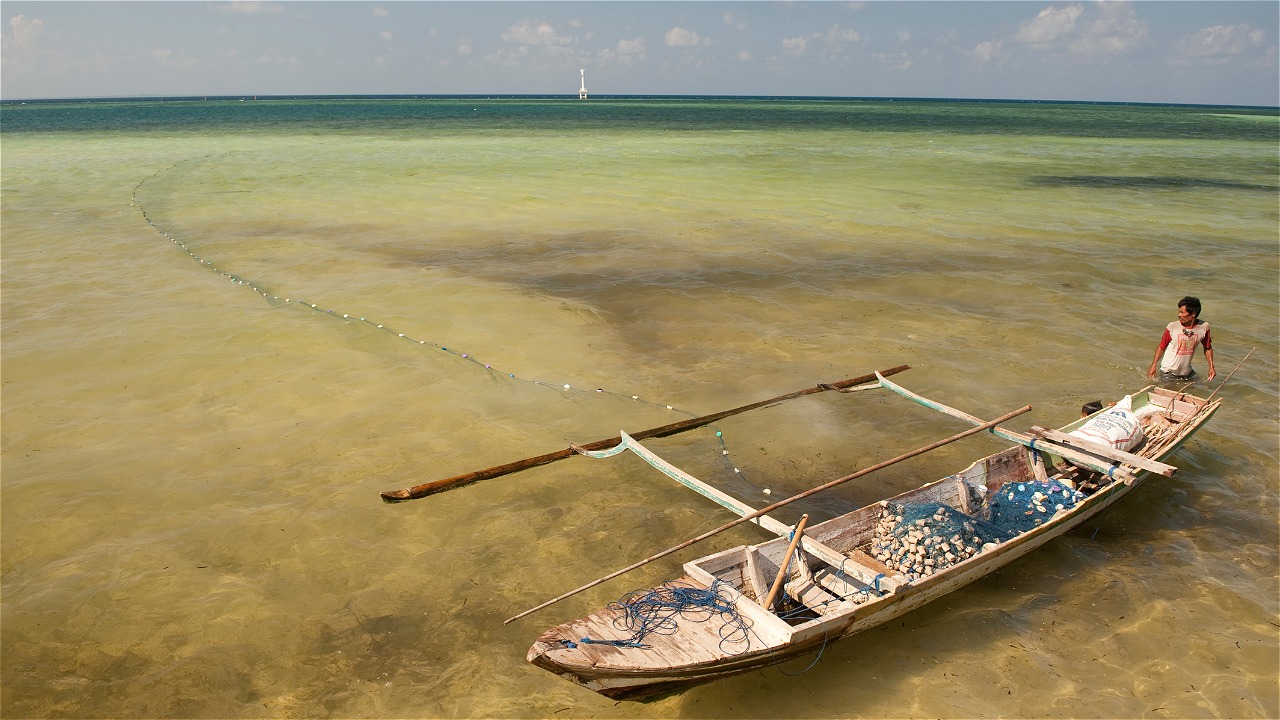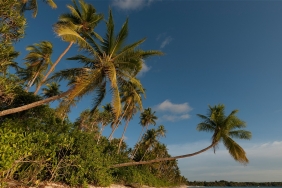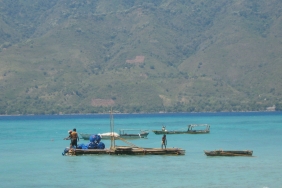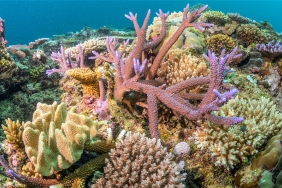KOMUNTO: NO OTHER PLACE AS BEAUTIFUL AS HOME, WAKATOBI
by Wakatobi Team
Who else will love a home better than its own inhabitants? The question was answered in a simple way by groups of fishermen in Tomia Island, Tukang Besi archipelago, Wakatobi Regency, Southeast Sulawesi. Through initiation and discussion process to unify vision, representatives of the group of fishermen from each village have agreed to form the Tomia Fishermen Community (Komunitas Nelayan Tomia or abbreviated as Komunto).
Komunto is a forum of local fishermen in keeping their territory so that their sea territory can sustain the next generation. Persistency and hard efforts finally brought Komunto as one of the winners of Equator Prize, an award event established by UNDP, in New York, United States of America, in 2010. It gives reward for those who have made real efforts to bring their community towards Millennium Development Goals, which consists of 8 pillars. Before Komunto was established, fishermen as majority of the community were scattered in a variety of interests. Gradually they realized that together, every problem can be solved with a comprehensive solution. Komunto was eventually declared in Timu village, Tomia, on September 15, 2006, by 24 representatives from the community’s consultation forum groups in Wakatobi National Park (Taman Nasional Wakatobi or TNW). Up till now, Komunto has already gained 312 people from 13 communities.
To enhance knowledge and experience of the community representatives in TNW area, since 2005 WWF-TNC Unified Program conducts various training programs, such as:
- Trainings and socialization on Human Rights in Tindoi, Wangi-Wangi.
- Trainings and socialization on Community Organizer (CO) in Hoga Island, Kaledupa.
- Trainings and socialization on Social Analysis in Hoga Island, Kaledupa.
- Trainings and socialization on Partisipatory Rural Appraisal (PRA) in Hoga Island, Kaledupa.
- Trainings and socialization on Marine Protected Area (MPA) in Hoga Island, Kaledupa.
The knowledge they get from the trainings and socialization is applied in their own management territory as has already divided by agreement. The activities mentioned above create groups of fishermen in almost every village. They get routine comprehension regarding preservation and conservation of natural resources as the life source of Wakatobi’s society which consists of 97% sea and 3% mainland.
The lack of education especially as happened to the fishermen is a challenge for members of Komunto in conducting their role and function in the society. Questions from the society must be answered wisely, especially the question about “zoning”. They assume that zoning is a prohibition to make a living from the sea. The fact is that at that time the zoning had never been conveyed to the society and set on one side without the society’s participation which resulted in a strong rejection toward the zoning.
One of the roles of the fishermen’s representatives at that time was to initiate the birth of groups of fishermen. The representatives of the groups then do further discussion to make bigger forum. Komunto was born from a series of brilliant discussions among the representatives. One of the regular programs of Komunto is having group meeting and discussion. This activity was then continued with regular meetings in the level of Regency, which is agreed to be held every six months.
Communication between groups of fishermen across Islands is also a very serious obstacle because of the lack of communication facilities. Finally, all parties agreed to publish a newsletter via Komunto. It is known as Jala Wakatobi which functions as reading materials and latest information media covering current issues. By cooperating with practitioners of Kendari, all group representatives finally agreed to build a community radio known as Vatalolo FM in Kaledupa Island, while in Tomia Island is known as Talombo FM, as well as Onituloua FM and Bantea FM in Binongko.
Furthermore, training programs conducted by the practitioners aim to improve skills and capabilities of human resources, such as:
- JALA WAKATOBI Media Training
- Village Media Training
- Radio Training
- Mapping Training
Other trainings are also held for members of each islands forum which is related with business sector in order to help them develop themselves by establishing economic enterprises such as cooperative enterprise training and business management training. Komunto has currently managed a cooperative enterprise. The other effort in economic sector is understanding non-extractive (indirect utilization) activity of maritime sector such as the utilization of natural surroundings in the form of ecotourism. Thus, Komunto has also earned knowledge in the Village Ecotourism Network Bali in 2008. In addition, Komunto also facilitates trainings for women fishermen to develop their fishing products into abon (shredded meat that has been boiled and fried) and kerupuk (chips made of flour flavored with fish or shrimp). As a result, their products have been recognized in the national market.
Komunto’s breakthrough has been dedicated for the maritime sector since it started the establishment of the fish bank in 2005. Fish bank is a concept they set in a certain sea territory by prohibiting all fishing activities with any methods. The result is a rise of ecosystem balance with a positive impact on quality and quantity of the fish stock. They hope that fish bank will grow in the future so that their activity as fishermen will last and can support them and the nation’s prosperity. Komunto’s vision is a part of the basic needs support such as food, health and education for future generations because members of Komunto are able to manage their maritime resources freely in TNW area on an ongoing rules based on local wisdom.
contact: Sugiyanta, Wakatobi Project Leader (sugiyanta@wwf.or.id)
Note:
Wakatobi is considered unique due to the region’s marine biodiversity as well as the scale of reef condition that makes Wakatobi the highest priority of marine conservation in Indonesia. At least four species of marine sea turtle are identified in this region, including green and hawksbill turtles. Beside sea turtles, there exist around 396 coral sceleractanian species, 31 fungia species, 31 foraminifera species, 34 stomatopods, and up to 942 fish species. This priceless biodiversity has brought successfully Wakatobi to its formalization as a Marine National Park in 1996. The WWF’s long and persistent work has been fully supported by USAID-CTSP, DANIDA (Danish International Development Agency), WWF-Netherland, and in collaboration work together with The Nature Conservancy (TNC).





